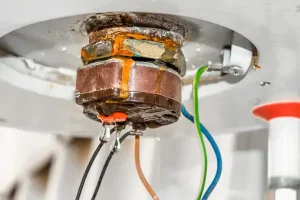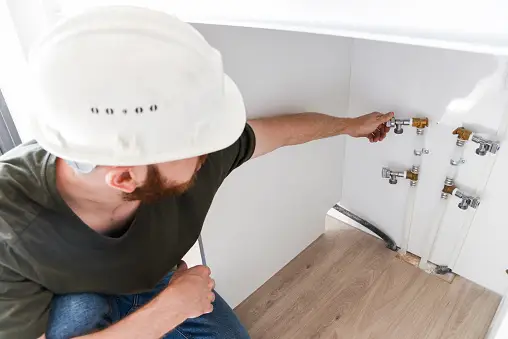Introduction
When it comes to the convenience of modern living, having a functional water heater leaks when using washing machine is a necessity for many households. However, encountering a water heater leak when using the washing machine can be a frustrating and disruptive experience. In this comprehensive guide, we will delve into the causes behind this issue, explore potential solutions, and address frequently asked questions to help you resolve the problem effectively.
Common Causes of Water Heater Leaks
Water heater leaks can have various causes, and it’s essential to identify the root issue to determine the appropriate solution. Here are some common reasons why water heaters may leak:
Corrosion:
Over time, water heaters may develop rust or corrosion, leading to leaks. Corrosion often occurs due to the accumulation of sediment or mineral deposits within the tank.
Faulty Pressure Relief Valve:
The pressure relief valve is designed to prevent excessive pressure buildup in the water heater. If this valve malfunctions or becomes faulty, it can result in leaks.
Loose Connections:
Loose or improperly sealed connections between the water heater and other plumbing components can cause leaks. These connections should be regularly checked and tightened if necessary.
Excessive Pressure:
If the water pressure in your home exceeds the recommended levels, it can strain the water heater and cause leaks. Installing a pressure regulator can help mitigate this issue.
Temperature and Pressure Relief Valve (TPR Valve) Issues:
The TPR valve is responsible for maintaining safe temperature and pressure levels within the water heater. A malfunctioning TPR valve can lead to leaks.
Age and Wear:
As water heaters age, their components may deteriorate, leading to leaks. The wear and tear on the tank, pipes, and fittings can weaken them over time, making them more susceptible to leaks.
Impact of Washing Machine Usage on Water Heaters
The regular use of a washing machine can put additional strain on the water heater, potentially exacerbating existing issues or causing new leaks. Here are a few factors that contribute to the impact of washing machine usage on water heaters:
Increased Water Demand:
Washing machines require a significant amount of hot water to operate effectively. This increased demand can put stress on the water heater, especially if it is already experiencing issues such as corrosion or loose connections.
Water Temperature Fluctuations:
Washing machines typically alternate between hot and cold water during different cycles. These rapid temperature changes can cause expansion and contraction within the water heater, leading to leaks.
Vibration and Movement:
Washing machines generate vibrations and movement during operation. If the water heater is in close proximity to the washing machine, this constant shaking can loosen connections and contribute to leaks.
It’s important to note that while the usage of a washing machine can contribute to water heater leaks, it is not always the sole cause. Proper maintenance and regular inspection of your water heater are crucial to identify and address any underlying issues.

Identifying Water Heater Leaks
Detecting a water heater leak early is vital to prevent further damage and minimize repair costs. Here are some signs that can help you identify if your water heater is leaking:
Visible Water:
Check the area around your water heater for any signs of water accumulation, puddles, or dampness. Be sure to inspect the floor, walls, and nearby pipes.
Dripping or Trickling Sounds:
Listen for any unusual sounds coming from your water heater, such as dripping or trickling noises. These sounds can indicate a leak, even if you don’t see visible water.
Sudden Decrease in Hot Water:
If you notice a significant decrease in the hot water supply, it could be a sign of a leak. Leaks can result in water loss, reducing the amount of hot water available for use.
Unusual Water Pressure:
Pay attention to any changes in water pressure, such as low or fluctuating pressure. Leaks can disrupt the normal flow of water, affecting the overall water pressure in your home.
If you suspect a water heater leak, it’s advisable to seek professional assistance from a licensed plumber to accurately diagnose the issue and recommend the appropriate course of action.
Addressing Water Heater Leaks
Once you’ve identified a water heater leak, prompt action is crucial to prevent further damage and ensure the continued functionality of your water heating system. The specific solution will depend on the underlying cause of the leak. Here are some potential steps to address water heater leaks:
Turn Off the Power:
Before attempting any repairs, ensure the power supply to the water heater is turned off. This step is essential to prevent electrical hazards.
Shut Off the Water Supply:
Locate the water shut-off valve connected to your water heater and turn it off to stop the water flow.
Call a Professional Plumber:
Contact a licensed plumber to inspect the water heater and determine the cause of the leak. They will have the expertise to repair or replace faulty components as needed.
Replace Faulty Valves or Connections:
If the leak is caused by a faulty pressure relief valve, TPR valve, or loose connections, the plumber will recommend replacing these components to resolve the issue.
Consider Water Heater Replacement:
In some cases, especially if the water heater is old or extensively damaged, it may be more cost-effective to replace the entire unit rather than attempting repairs.
Remember, attempting DIY repairs without proper knowledge and expertise can lead to further damage or safety hazards. It’s best to rely on a professional plumber to ensure the proper repair or replacement of your water heater.
Frequently Asked Questions
Why is my water heater leaking when I use the washing machine?
Water heater leaks when using the washing machine can be caused by several factors, such as corrosion, faulty valves, loose connections, or increased water demand. The strain put on the water heater during washing machine usage can exacerbate existing issues or create new leaks.
Can a faulty washing machine cause water heater leaks?
While a faulty washing machine itself may not directly cause water heater leaks, the increased demand for hot water and the vibrations generated during operation can contribute to existing issues or loosen connections, leading to leaks.
How can I prevent water heater leaks when using the washing machine?
To prevent water heater leaks when using the washing machine, follow these tips:
- Regularly inspect your water heater for signs of corrosion or leaks.
- Maintain proper water pressure in your home by installing a pressure regulator if necessary.
- Ensure all connections between the water heater and plumbing components are tight and properly sealed.
- Consider scheduling routine maintenance for your water heater to catch any potential issues early.
Should I repair or replace a leaking water heater?
The decision to repair or replace a leaking water heater depends on the extent of the damage, the age of the unit, and the cost-effectiveness of the repair. It’s best to consult with a professional plumber who can assess the situation and provide expert advice.
Can a plumber fix a water heater leak caused by the washing machine?
Yes, a licensed plumber can diagnose and repair water heater leaks caused by the washing machine. They have the knowledge and expertise to identify the root cause of the leak and perform the necessary repairs or replacements.
Are water heater leaks covered by homeowners’ insurance?
In some cases, water heater leaks may be covered by homeowners’ insurance policies. However, coverage varies depending on the specific policy and the cause of the leak. It’s advisable to review your insurance policy or consult with your insurance provider to determine the extent of coverage.
Conclusion
Experiencing water heater leaks when using the washing machine can be a challenging situation. By understanding the common causes, identifying leaks early, and seeking professional assistance, you can address the issue effectively. Remember to prioritize safety, consult with licensed plumbers, and consider regular maintenance to keep your water heating system in optimal condition.
